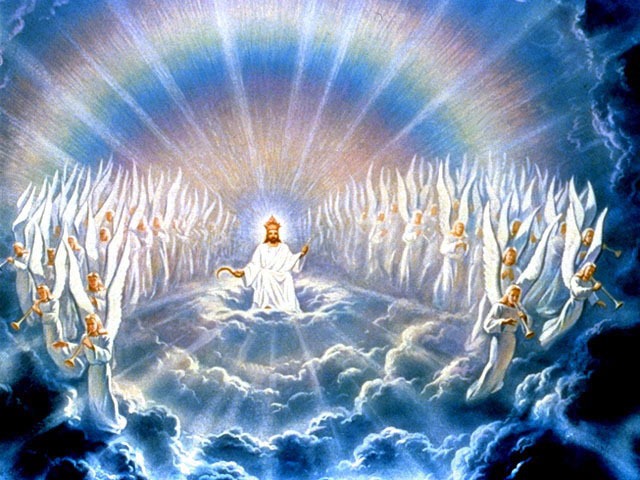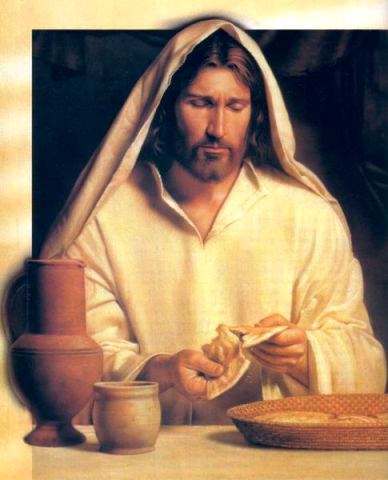Communion
As Oft as ye Eat and Drink.
For as often as ye eat this bread, and drink this cup, ye do shew the Lord's death till he come.
1 Corinthians 11:26.
The salvation of men depends upon a continual application to their hearts of the cleansing blood of Christ. Therefore, the Lord's Supper was not to be observed only occasionally or yearly, but more frequently than the annual Passover. This solemn ordinance commemorates a far greater event than the deliverance of the children of Israel from Egypt. That deliverance was typical of the great atonement which Christ made by the sacrifice of His own life for the final deliverance of His people.
This ordinance is not to be exclusive, as many would make it. Each must participate in it publicly, and thus bear witness: I accept Christ as my personal Saviour. He gave His life for me, that I might be rescued from death.

The communion service points to Christ's second coming. It was designed to keep this hope vivid in the minds of the disciples. Whenever they met together to commemorate His death, they recounted how "he took the cup, and gave thanks, and gave it to them, saying, Drink ye all of it; for this is my blood of the new testament, which is shed for many for the remission of sins. But I say unto you, I will not drink henceforth of this fruit of the vine, until that day when I drink it new with you in my father's kingdom." Matthew 26:27-29. In their tribulation they found comfort in the hope of their Lord's return. Unspeakably precious to them was the thought, "As often as ye eat this bread, and drink this cup, ye do shew the Lord's death till he come." . . .
Christ has instituted this service that it may speak to our senses of the love of God. . . . There can be no union between our souls and God except through Christ. The union and love between brother and brother must be cemented and rendered eternal by the love of Jesus. And nothing less than the death of Christ could make His love efficacious for us. It is only because of His death that we can look with joy to His second coming. His sacrifice is the center of our hope.”
FLB 302
